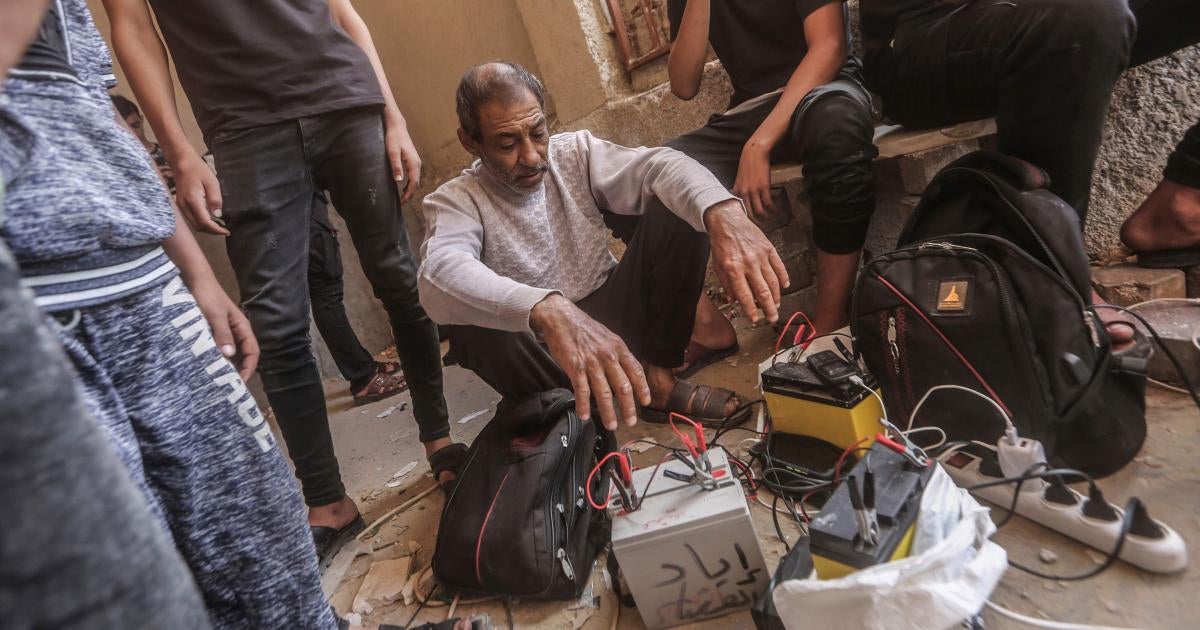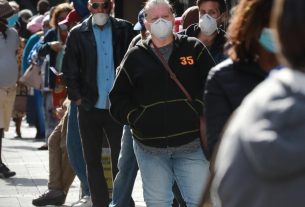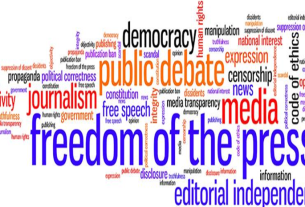(Jerusalem) – The Israeli government’s decision to bar delivery of fuel to Gaza will trigger a complete communications blackout imminently if not urgently addressed, further endangering the lives of Gaza’s population, Human Rights Watch said today. Israel should allow desperately needed fuel into Gaza and refrain from deliberately shutting down or destroying telecommunications systems that cause disproportionate harm to civilians.
Palestinians in Gaza have already endured more than a month of ongoing phone and internet disruptions as a result of relentless airstrikes by Israel. The Israeli authorities’ actions have included damage to core communications infrastructure, cuts to electricity, fuel blockades, and apparently deliberate shutdowns through technical measures.
“Intentional, blanket shudowns or restrictions on access to the internet violate multiple rights and can be deadly during crises,” said Deborah Brown, senior technology researcher at Human Rights Watch. “Prolonged and complete communications blackouts, like those experienced in Gaza, can provide cover for atrocities and breed impunity while further undermining humanitarian efforts and putting lives at risk.”
Shortly after the October 7, 2023 attacks, Israeli authorities announced “a complete siege” on Gaza, cutting off electricity and other basic necessities, acts that amount to unlawful collective punishment, a war crime. Lack of electricity puts Palestinian civilians at grave risk and contributes to communication blackouts. Gaza’s sole power plant ran out of fuel on October 11.
Paltel Group, which includes the telecommunications companies Jawwal and Hadara, is one of the few service providers still operational in Gaza. It told Human Rights Watch in response to an inquiry letter that with the current scarcity of fuel, it expects a blackout by the end of this week, when all remaining fuel is consumed and the few remaining generators stop working.
Almost immediately following October 7, telecommunications services in Gaza began experiencing disruptions. On October 8, airstrikes demolished al-Watan Tower. The tower housed at least one communications company, which reported that its services had been halted because of the building’s destruction. Israeli airstrikes on October 9 destroyed an office of the main Palestinian communications company, Paltel.
According to the United Nations Office for the Coordination of Humanitarian Affairs (OCHA), on October 10, airstrikes targeted several telecommunication installations, destroying two of the three main lines for mobile communication. This left Gaza residents reliant on just one line for mobile and internet connections, resulting in disruptions to mobile and internet services.
Dramatic drops in internet traffic in Gaza were observed starting on October 9. By October 23, RIPE NCC, the regional internet registry, detected that eight Palestinian networks were no longer interacting with the global internet. As of October 31, 15 of the 19 providers operating in Gaza were facing a complete shutdown of their mobile and broadband services, and the remaining four were experiencing significant but varying levels of disruption, according to a November 10 Access Now report.
On October 27, at the start of Israel’s land incursion into Gaza, the slow and patchy connectivity in the strip came to a grinding halt during an approximately 34-hour communications blackout, the longest in this crisis.
Paltel confirmed to Human Rights Watch that “when service was restored without our intervention, it was quite clear that these disruptions resulted from deliberate actions perpetrated by Israeli authorities, and it happened twice afterwards.” Paltel explained that in the immediate aftermath of the blackout, it requested a movement permit from Israeli authorities to determine the location of the fiber cuts, which it thought was the cause of the outage, but the request was not granted.
Multiple media outlets cited anonymous US officials who believed that Israel was responsible for the blackout, as well as for the restoration of some connectivity following pressure from the US government.
Israeli officials have declined to comment to media directly on whether they were responsible for the blackouts. Israel’s Communications Ministry said on October 17 that it was undertaking “an ongoing examination and preparation for the shutting down of cellular communications and Internet services to Gaza.” When asked whether Israel knocked out telecom services at the start of the ground offensive, Israel’s chief military spokesperson said: “We do what we have to do to secure our forces for as long as we must, temporary or permanent, as much as we need to and we will not say anything further about that.”
Gaza experienced two subsequent complete communication blackouts: one on November 1, lasting more than 8 hours, and another on November 5, lasting more than 15 hours. Paltel attributed both blackouts to Israel’s disruption of access to cables that connect Gaza to the global internet. Paltel attributed another complete blackout affecting northern Gaza on October 29 to a generator failure following Israeli airstrikes.
Communications blackouts risk providing cover for atrocities. The UN Office of the High Commissioner for Human Rights has recognized that the inability to access tools to document and rapidly report abuses can contribute to further violence and atrocities. The UN Special Rapporteur on freedom of expression has noted that some shutdowns may even be implemented with the deliberate intent of covering up human rights violations. The outage that began on October 27 preceded two days of significant increase in Israeli airstrikes, according to an informed source who shared airstrike data, and also marked the start of Israel’s ground operation. Communications disruptions and blackouts are preventing civilian, humanitarian, and civil society groups from documenting and identifying the dead.
Communnications blackouts could also contribute to impunity for human rights violations. With no ability to document and share critical evidence, shutdowns hamper important accountability efforts. Social media has become a crucial tool for witnesses to violations to share video and photographic evidence, and for human rights organizations and journalists to document them. This includes prosecutions of war crimes and other international crimes, including at the International Criminal Court.
These blackouts have exacerbated an already dire humanitarian situation, denying people access to reliable safety information, emergency medical services, and contact with family and friends both inside and outside Gaza. According to OCHA, lack of communications has “brought the already challenging delivery of humanitarian assistance to a complete halt and is depriving people of life-saving information.” The Palestinian Red Crescent Society described directing ambulances based on the sound or location of explosions, in the absence of telecommunication services.
The shutting down of the internet during an armed conflict needs to take into account the basic principles of the laws of war, including those of necessity and proportionality. The principle of proportionality prohibits actions in which the expected civilian harm is excessive in relation to the anticipated military advantage.
Under international human rights law, governments have an obligation to ensure that restrictions to the internet are provided by law and are a necessary and proportionate response to a specific security concern. Even in times of conflict, shutting down entire parts of communications systems can never be justified under human rights law.
Decades of Israeli control and repression have left Gaza’s communications infrastructure centralized, controlled, and susceptible to disruption through physical damage and technical interference by Israel. The Israeli government strictly limits what services telecommunications companies can provide in Gaza and how Palestinian networks connect to the rest of the world.
Because all wired traffic must transit through Israel before interconnecting to the global network, the Israeli government has opportunities to disconnect Gaza from the internet using technical means. Many service providers in Gaza also rely on the same physical networks to provide access, leaving the entire communications network more susceptible to disruption as a result of physical damage.
Prior rounds of hostilities between Israel and Palestinian armed groups have resulted in significant disruption of communications due to lack of power and physical damage and have devastated communications infrastructure, further delaying network development and deepening the digital divide between Gaza and the rest of the world. Ongoing restrictions on imports further impede the ability of Gaza telecommunications networks to recover from destruction and expand.
Paltel told Human Rights Watch that all parts of its infrastructure have been affected and that it is not able to make significant repairs or even estimate what is required to do so since that requires machinery, equipment, spare parts, human resources, and freedom of movement. “During war our teams can only move during ceasefire and if granted safe passages,” Paltel said. “During this war that did not happen except on one occasion where our teams were given a 2-hour window to repair a major fiber cut 8 days after it happened.”
The International Telecommunications Union should, at its upcoming World Radiocommunications Conference, commit additional resources to rebuilding Palestinian telecommunications infrastructure, Human Rights Watch said. It should also implement previous resolutions on assistance and support to Palestine, including facilitating the establishment of Palestine’s own international gateway networks, Palestinian management of its own radio spectrum and modernization of its internet infrastructure.
“The Israeli government should allow fuel to reach Gaza to avoid plunging its population further into isolation and end its collective punishment of Gaza’s civilian population,” Brown said.



